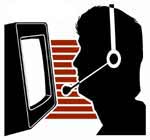What Got You Here Won't Get You There: How Successful People Become Even More Successful This is certainly an intriguing title. People who have achieved some level of success want to get to that next level and the book title suggests that you are going to need something more to get to that next level. The author, Marshall Goldsmith, is an executive coach for CXO's in the Fortune 500 - the corporate elite. He makes the plausible argument that at this level (CEO, CIO, CFO, etc.) pretty much everyone has the skill set to reach that level. He says that the higher you go, the more your problems are behavioral. So he concentrates on 20 bad habits that successful people often have. Most of the 20 are common sense, learned-in-kindergarten type issues. The 20 include speaking when angry, withholding recognition from subordinates and peers, failing to apologize, surrounding yourself with suck-ups and so on. Regarding the suck-ups, Goldsmith indicates that dogs give unconditional affection, not people. If everyone is fawning over the boss, who is doing the work? Good question. Once you are a success there are 4 standard payoffs for more success: - Money,
- Power,
- Status,
- Popularity
Some successful people will need the next level payoff - hot buttons of self interest such as leaving a legacy, creating a great company or being an inspiring role model.Often his solution for changing a behavior is to charge yourself money. For example, if your problem is that you feel the need to add value (yours) to every discussion and decision, charge yourself $10 every time you say "no, but or however." Your staff will be alert to the prospect of quick cash and you can be weaned of a bad habit pretty quickly. Beyond the 20 annoying and limiting characteristics, Goldsmith gets into some bigger issues as well such as Goal Obsessing. The classic example is the general in The Bridge over the River Kwai. He was so into building a great bridge that he lost focus of the real goal - to win the war for the Allies. Goldsmith says that 95% of successful people say they are in the top 50% so an outsider is often needed to bring reality to the situation and to push you. He has someone call him every night and ask him about a dozen questions about what he ate, did he exercise, how much writing did he do and so on. He has improved in all those categories because he doesn't want to face his coach at night with a bad report. You will be tempted to skip over some of the habits/flaws that you think you don't have but I advise you not to. You may think you are clear of that attribute but others may not. Take the time to read through the examples and see if any of it hits home. Better yet, if you really want to improve and go to the next level, ask co-workers and others to evaluate you.
Great Lakes Geek Rating: 3.5 out of 5 pocket protectors.
Reviewed by Entreprenerd Dan Hanson, the Great Lakes GeekWhat are you reading? Let us know at dan@greatlakesgeek.com
Top of Page
Back to Great Lakes Geek Book Reviews
| 



